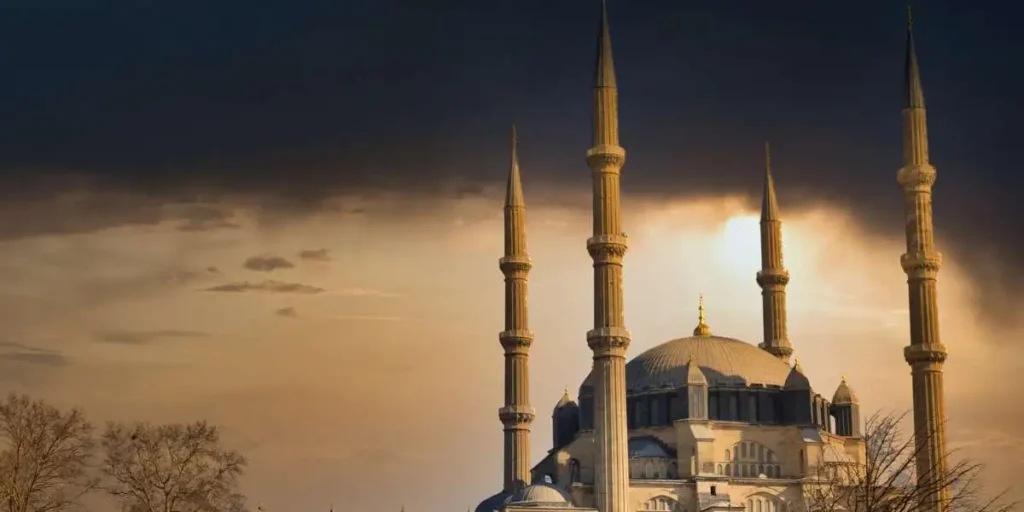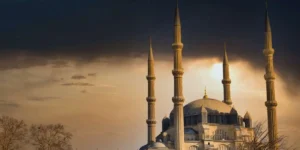summary
Mosques, more than places of prayer, are vibrant centers of the Muslim community. Its grandeur and architectural beauty reflect the rich history and culture of Islam, inspiring devotion and admiration. In this article, we will embark on a journey to the five largest mosques in the world, exploring their history, architecture and cultural significance.
What is a Mosque?
A mosque is a place of worship for Muslims, where they gather to perform prayers, celebrate festivals and seek religious knowledge. The word “mosque” derives from the Arabic “masjid”, which means “place of prostration”. Simplicity and a focus on prayer characterize the interiors of mosques, often adorned with calligraphy and ornate carpets.
Functions of the Mosque
- Education centers: Koranic schools and religious education centers operate within mosques, transmitting knowledge to new generations.
- Community centers: Mosques promote social well-being by organizing charitable events, offering support to those in need, and strengthening ties between community members.
- Cultural symbols: The grandeur of the mosques represents the strength of Muslim faith and cultural identity, serving as historical landmarks and important tourist attractions.
1. al-Masjid al-Haram
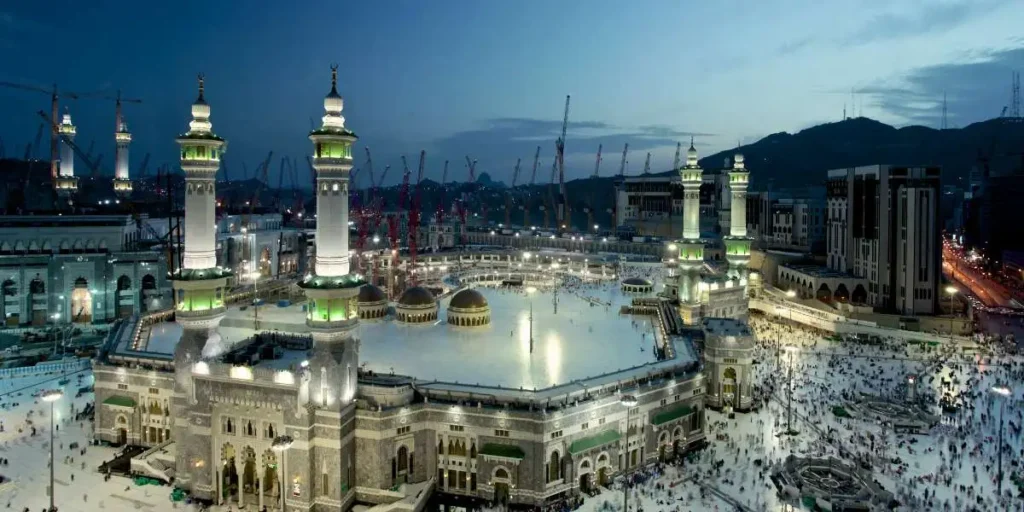
Location
Mecca, Saudi Arabia
400,800 m2
Up to 2 million
Built in the 7th century AD
The largest mosque in the world and the holiest site in Islam , home to the Kaaba, a stone cube that Muslims believe was built by Abraham and Ishmael.
- Islam’s holiest sanctuary, home to the Kaaba, to which all Muslims turn during prayers.
- It is impossible not to be impressed by its grandeur, capable of housing up to 2 million faithful during the Hajj.
- Monumental architecture with several courtyards, columns and arches, as well as the imposing minaret of King Abdulaziz.
2. Al-Masjid an-Nabawi

Medina, Saudi Arabia
400,500 m2
698,000 people
Built in the 7th century AD
The second largest mosque in the world and the second holiest site in Islam, home to the tomb of the Prophet Muhammad.
- Second holiest mosque in Islam, built by the prophet Muhammad after his migration from Mecca.
- It houses the tomb of the prophet and his companions, making it an important pilgrimage site.
- Architecture rich in details, with mosaics, calligraphy and the famous Green Dome that covers the prophet’s tomb.
3. Al-Masjid al-Aqsa

Jerusalem, Palestine
144,000 m2
250,000 people
Built in the 7th century AD
Third largest mosque in the world and sacred place for the three monotheistic religions, where the Al-Aqsa Mosque and the Dome of the Rock are located.
- Masjid al-Aqsa is a site of great religious importance for three monotheistic religions.
- The mosque is located on the Temple Mount, which is considered sacred by both religions.
- The Dome of the Rock is an octagonal structure with a golden dome, built in the 7th century AD
4. The Sheikh Zayed Grand Mosque
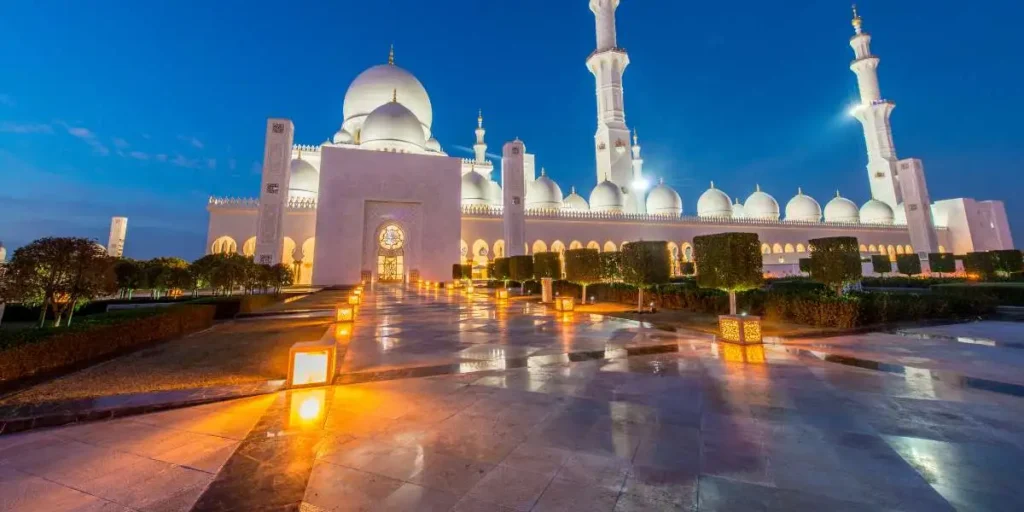
Abu Dhabi, United Arab Emirates
22,412 m2
40,000 people
Built between 1996 and 2007
One of the largest mosques in the world, known for its opulent architecture and rich ornamentation.
- The Sheikh Zayed Grand Mosque is a masterpiece of modern Islamic architecture.
- The mosque is open to visitors of all religions and is a popular tourist destination.
- The mosque is a symbol of tolerance and peaceful coexistence between different cultures.
5. Hassan II Mosque
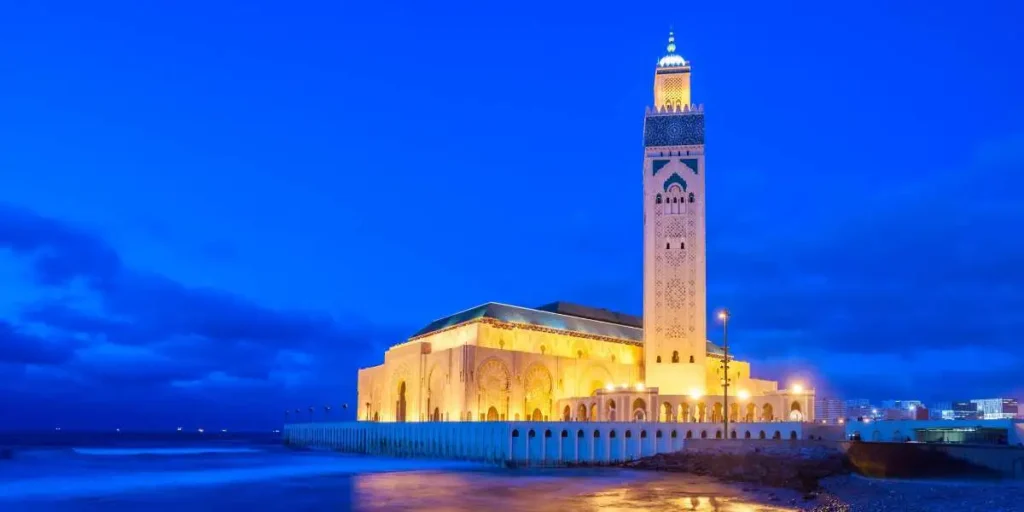
Casablanca, Morocco
90,000 m2
105,000 people
Built between 1986 and 1993
The largest mosque in Morocco and the seventh largest in the world, with a 210 meter high minaret, the tallest in the world.
- The Hassan II Mosque is one of the largest mosques in the world and the largest in Morocco.
- The mosque is located on the seafront and offers a stunning view of the Atlantic Ocean.
- The mosque’s roof is retractable, allowing worshipers to pray outdoors.
- The mosque is a symbol of Morocco’s modernity and the country’s openness to the world.
History and Architecture
Each mosque has a unique and rich history, reflected in its architecture. Masjid al-Haram, for example, has been expanded over the centuries and houses the Kaaba, an annual pilgrimage site for millions of Muslims. Al-Masjid an-Nabawi, on the other hand, was built by the prophet Muhammad and has a rich history linked to his life and teachings.
The architecture of the mosques comes in a variety of styles, from the classical Arabic style of Masjid al-Haram to the modern grandeur of the Sheikh Zayed Grand Mosque. Elements such as minarets, arches and ornamental calligraphy are often found, creating a unique and inspiring aesthetic.
Cultural Significance
Mosques are symbols of Muslim faith and culture, representing the importance of community, education and charity. They serve as meeting points for Muslims, promoting a sense of identity and belonging.
Preservation of Mosques
The preservation of mosques is crucial to keeping Muslim history and culture alive. Through restoration and conservation efforts, these historic monuments can continue to inspire and serve communities for generations to come.
Conclusion
The Great Mosques of the World are more than places of prayer. They are centers of faith, education and culture, representing the rich history and vibrant identity of Islam. Through exploring its history, architecture and cultural significance, we can understand the importance.

